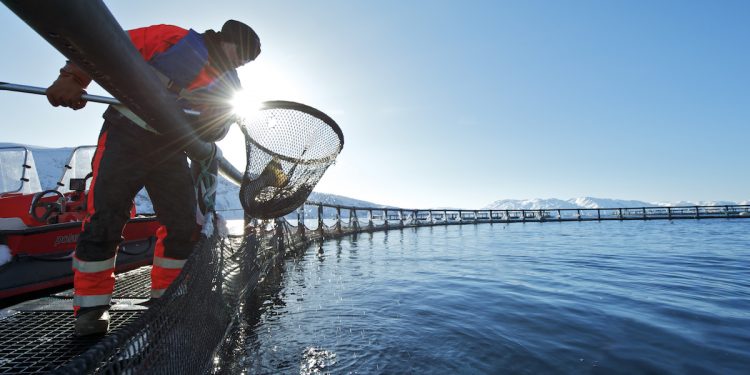The seafood industry is expected to play a key role in getting Norway’s economy and workforce up and running again in the wake of the Covid-19 pandemic.
‘For Norway and other seafood nations, this is a real opportunity for a blue revolution and illustrate the real meaning of sustainability – social, economic and environmentally. Seafood can be an important part of the solution in terms of rebuilding communities, creating jobs and responsible and low-carbon footprint food production,’ said Norwegian Seafood Council CEO Renate Larsen.

She commented that as society is now slowly gradually opening up after successfully curbing the spread of the virus in Norway, the job of how to get the economy back on track has started in earnest. In the past week, Prime Minister Erna Solberg and Fisheries Minister Odd Emil Ingebrigtsen have been meeting representatives from the seafood industry to discuss what role it should play in rebuilding the economy.
During the Corona crisis, the Norwegian seafood industry has been fully operational, as it is classified as essential for food security. Exports of salmon, cod and other seafoods have also been relatively stable, but with large differences between species, products, and markets.
‘The world is awakening to a new world order after this crisis, and we will feel the repercussions for a long time, both in terms of economic uncertainty and in our everyday choices. But the world will move on, we still have a mountain to climb when it comes to tackling climate change and food security, and investments into responsible seafood production is part of the solution,’ Renate Larsen said.
‘In Norway we are in a very fortunate position to be in the financial situation to boost industry and to get new and sustainable projects off the ground in the seafood sector quickly after this crisis. It can be a huge opportunity for the seafood industry, not just in Norway, but also in many of our important export markets, where jobs are created in processing, distribution and sales.’









